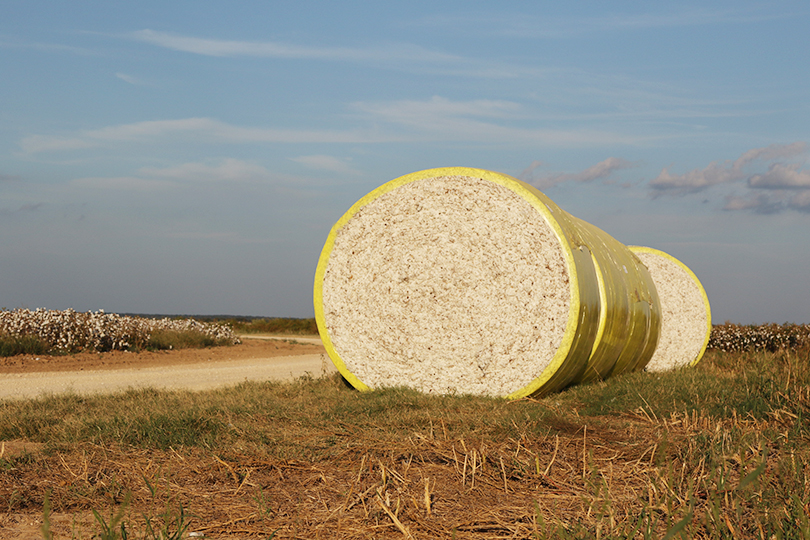By Jennifer Dorsett
Field Editor
Farmers now have a tool to track their sustainable BASF e3 cotton bales as they move through the supply chain, thanks to a fully digitized bale-tracking platform.
“Jennifer Gasque-Crumpler with BASF asked how we could collaborate on using both of our tracking systems to make it easier for farmers to use those tracking tools and promote sustainability,” Carlos Garcia, Plains Cotton Cooperative Association (PCCA) export sales manager, said. “It’s kind of like when you go to a doctor’s office and have to fill out paperwork, then they refer you to another doctor. You fill out the same paperwork there, and you have to explain everything all over again. That’s frustrating. But through our collaboration, the data entry is as seamless as possible, and farmers only have to input everything once. It makes it easier on the farmers, and it helps all of us share the story of sustainability at the same time.”
BASF’s e3 Sustainable Cotton program connects cotton farmers, merchants, mills and retailers so consumers know what the clothes they buy are made of and how they’re made, as well as where and how the cotton is grown.
“As more and more brands and retailers are moving to a commitment to using sustainable cotton by a certain deadline, we’re seeing more demand from end-users, and we’ve been getting many questions about offering e3 cotton,” Garcia said. “So, this was not only a big help to our farmers in reducing data inputs, but it was the perfect opportunity to collaborate with BASF.”
The process begins when the farmer receives a seed invoice from the seed seller for either BASF-branded FiberMax or Stoneville cottonseed. The farmer completes a digital e3 cotton field and operation enrollment using MyFarms, an online farm management platform, and grows the cotton, just like any other field.
After harvest and transport to the gin yard, a U.S. Department of Agriculture (USDA) permanent bale ID (PBI) is created at the gin and entered in a database.
Once the yarn has been created from the bale, merchants sell cotton to a mill, and the merchant will send BASF a list of bales to be validated. Proof of purchase is sent to BASF, which then sends the mill a certificate of authenticity.
The cotton’s certificate of authenticity follows the woven fabric through the chain of custody. Licensed retailers can display e3 branding on their cotton garments or home furnishings.
“This creates an avenue for us to continue to sell our farmers’ cotton on an international scale and really share their stories,” Garcia said. “On a worldwide scale, U.S. farmers are probably the most sustainable producers out there. We’ve always known that, but in the past, we didn’t really promote that fact. But now, sustainability programs like e3 allow us to tell their story and share why all of us do what we do in the cotton supply chain. It’s a little extra work to get started, but it plays to our farmers and helps enhance demand for U.S. cotton, because we’re the leader in sustainable farming practices.”
Farmers can use PCCA smartphone apps and online platforms to streamline their MyFarms registration and field boundary definition mapping process. PCCA member gins use software that automatically capture and identify PBIs, eliminating the need for manual submission. To use PCCA’s apps and tools, farmers must be a PCCA member.
“We’re excited about this new collaboration with PCCA and to be able to bring our Southwest growers this capability,” Gasque-Crumpler, BASF’s e3 Sustainable Cotton program manager who worked with PCCA on the project, said. “Not only because it allows for more accurate, field-level traceability, but it ultimately saves the farmer and ginner time by simplifying the process.”

